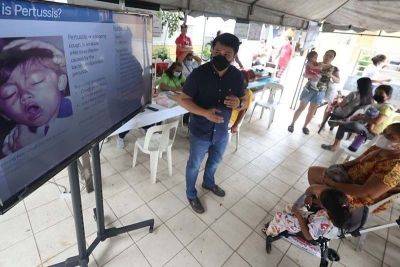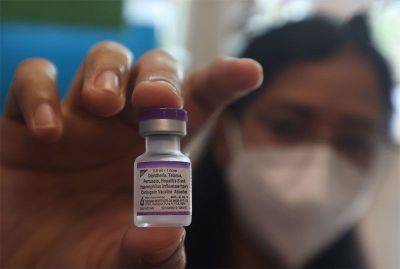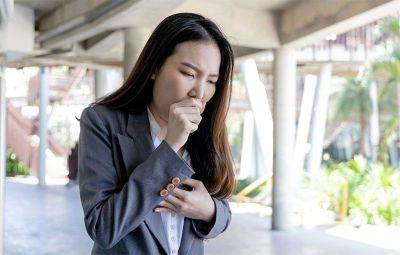DOH urges vaccination as measles, pertussis cases rise
MANILA, Philippines (Updated 4:50 p.m.) — The Department of Health (DOH) on Thursday called on the public to get vaccinated as cases of measles, rubella and pertussis increase.
The DOH urged the public to get their free measles, mumps and rubella (MMR), and tetanus, diphtheria and pertussis (Tdap) vaccines at their local health centers.
The health department said that its Public Health Emergency Operations Center (PHEOC) is intensifying activities to contain the measles outbreak through vaccination, micronutrient supplementation, community engagement, and risk communication.
The World Health Organization earlier raised alarm at the rapid spread of measles, with over 306,000 cases reported worldwide last year—a 79% increase from 2022.
In the Philippines, 569 measles and rubella cases have been recorded as of February 24. All regions, except Bicol and Central Visayas, have reported an increase in cases in the past month.
Between February 11 and 24, 163 new cases were logged, representing a 3% rise compared to the previous two weeks.
“Epidemiologic profile shows that those under five years of age and who are unvaccinated are the most affected,” the DOH noted.
Measles, locally known as “tigdas,” is a highly contagious disease that primarily affects children. Symptoms of measles include high fever, cough, runny rose and a body rash.
Rubella, also known as German measles, is also a contagious disease caused by a different virus than measles. It typically causes a mild illness with symptoms like low fever, sore throat and a rash
Both spread easily when an infected person coughs or sneezes. However, measles and rubella can be prevented with the MMR vaccine.
The DOH aims to vaccinate at least 90% of the high-risk population, particularly children aged six months to 10 years, to control measles transmissions. In 2022, immunization against measles stood at 69%.
Experts attribute the rise in vaccine-preventable diseases to gaps in vaccination coverage and disease surveillance, and increased mobility following the relaxation of COVID-19 restrictions.
In the Philippines, the highly politicized Dengvaxia controversy eroded public trust in the government’s immunization







